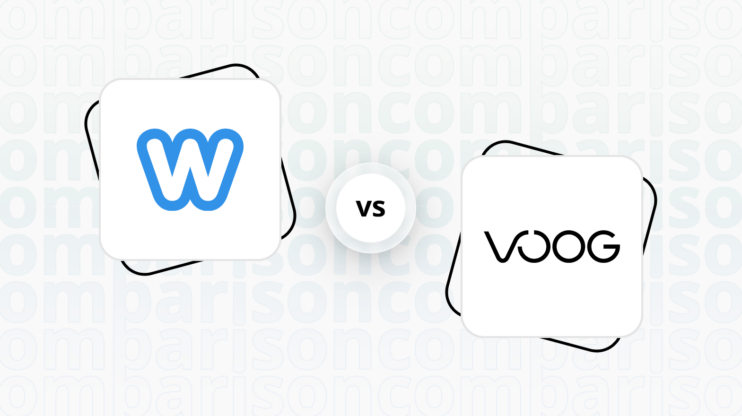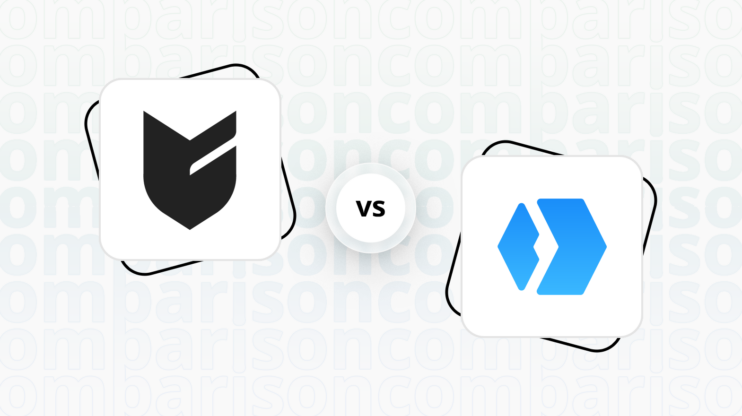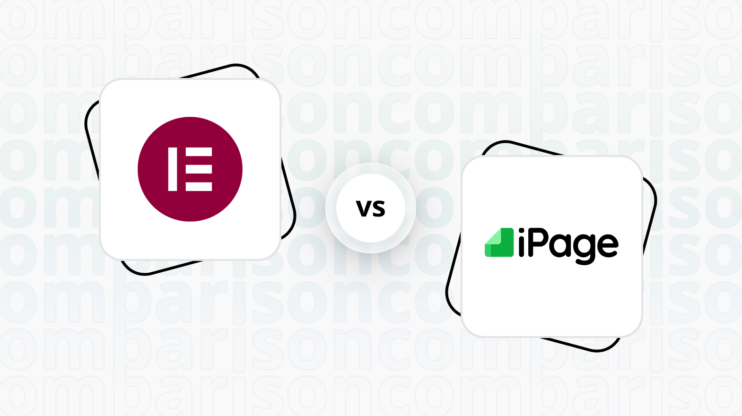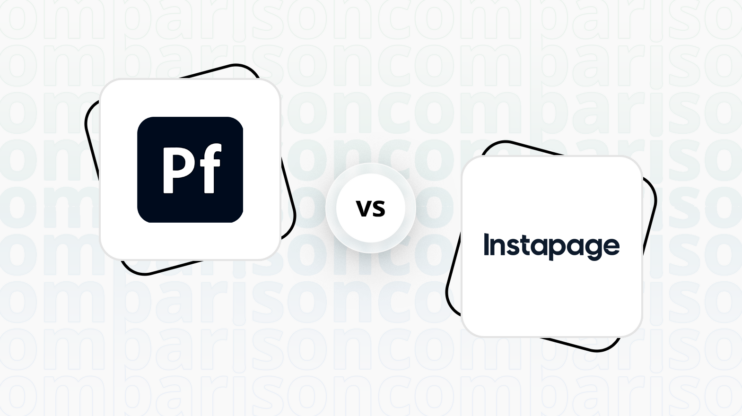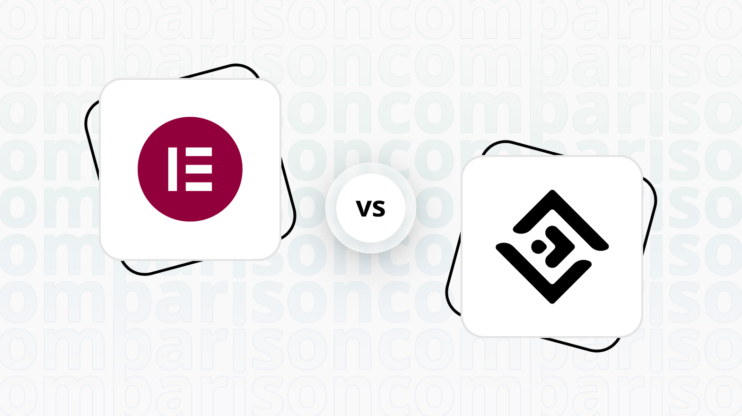Final verdict
Framer and Adobe Commerce(ex Magento) both offer unique strengths, catering to different user needs and project scopes.
-
Framer (Overall Grade: 7.1/10)
is a versatile website builder that excels in design and prototyping. It offers an intuitive user interface, AI-driven design tools, and extensive customization options, making it ideal for designers and developers. However, it lacks native ecommerce features, relying on integrations for such functionalities. Framer is best suited for creative projects and smaller businesses looking for a user-friendly, design-centric platform. -
Adobe Commerce(ex Magento) (Overall Grade: 6.9/10)
is a powerful ecommerce platform designed for scalability and flexibility. It offers comprehensive ecommerce features, advanced marketing tools, and robust security measures, making it suitable for both B2B and B2C businesses. While it has a steeper learning curve and higher costs, its extensive customization options and integration capabilities make it a strong choice for businesses aiming to establish a comprehensive online store.

|

|
|
|---|---|---|
|
Design functionalities & templates |
8.5 |
6.7 |
|
Ease of use |
7.1 |
5.4 |
|
Ecommerce |
5.9 |
9.4 |
|
Website Editors |
7.6 |
7.8 |
|
Product testing options |
6.2 |
3.9 |
|
Price |
7.7 |
5.8 |
|
Hosting quality |
7.1 |
8.1 |
|
Website speed optimization |
7.4 |
6.6 |
|
Plugins/extensions and integrations |
7.6 |
9.1 |
|
Marketing features |
7.2 |
8.1 |
|
Customer support |
5.6 |
8.3 |
|
Website security |
8.2 |
8.4 |
|
AI capabilities |
7.6 |
7.7 |
|
User Management |
7.4 |
8.0 |
Best for ecommerce
 5.9
5.9
 9.4
9.4
Verdict
: Adobe Commerce (ex Magento) is the clear winner for ecommerce, offering a comprehensive suite of features that cater to both B2B and B2C businesses. Framer, while innovative in design, lacks the depth and native ecommerce functionalities required for robust online stores.
-
Framer
: Framer is a versatile website builder that excels in design and customization through its AI-driven tools and component library. However, it falls short in native ecommerce capabilities, relying on integrations with platforms like Ecwid and Shopify. This makes it suitable for smaller projects or businesses with simple ecommerce needs. Its score of 5.9 reflects these limitations. -
Adobe Commerce (ex Magento)
: Adobe Commerce stands out with a score of 9.4, offering extensive ecommerce features such as product and inventory management, order management, and multi-channel commerce. It supports a wide array of payment gateways and provides advanced customization options, making it ideal for businesses looking to scale. Its integration with Adobe Experience Cloud further enhances customer insights and marketing capabilities, making it a robust solution for serious ecommerce ventures.
Best for informational & business websites
 7.5
7.5
 7.4
7.4
Verdict
: Framer slightly edges out Adobe Commerce(ex Magento) for informational and business websites due to its user-friendly design interface and AI-driven tools, making it more accessible for users without technical expertise.
-
Framer
: Framer is a website builder that blends AI-driven design with an intuitive user interface, catering to both novices and experienced designers. It offers a drag-and-drop interface, extensive customization through a comprehensive component library, and AI tools for content generation and localization, making website design and management accessible and efficient. With a range of pricing plans, Framer suits various project sizes and budgets, although it faces limitations like a learning curve for beginners and lack of native e-commerce features. Framer scores 7.5 in this category. -
Adobe Commerce(ex Magento)
: Adobe Commerce, formerly known as Magento, is a versatile commerce platform suitable for both B2B and B2C businesses. It offers AI-driven personalization, supports multiple brands and markets, provides developer tools for customization, and ensures scalability with cloud-native solutions. Integration with Adobe Experience Cloud enhances customer insights, and it includes features like store fulfillment, PWA studio, customer segmentation, and business intelligence tools. Its cloud delivery ensures security and PCI compliance, and it seamlessly integrates with third-party applications and services. Adobe Commerce(ex Magento) scores 7.4 in this category.
Detailed comparison
Design functionalities & templates
Design FunctionalitiesRepresents how well each platform allows for creative design and customization of websites.Score Components:
- Template Variety (30%): Range and quality of design templates.
- Customization (30%): Flexibility and options for design alterations.
- User Interface (20%): Ease and intuitiveness of the design process.
- Responsiveness (10%): Adaptability to different devices and screen sizes.
- Innovation (10%): Unique design features and tools.
 8.5
8.5
 6.7
6.7
🏆
Winner: Framer.
Framer offers a diverse array of over 1,000 customizable website templates and designs, catering to various industries and project requirements. It stands out for its robust design and prototyping features, including responsive design capabilities, real-time collaboration, and extensive import options from other design tools.
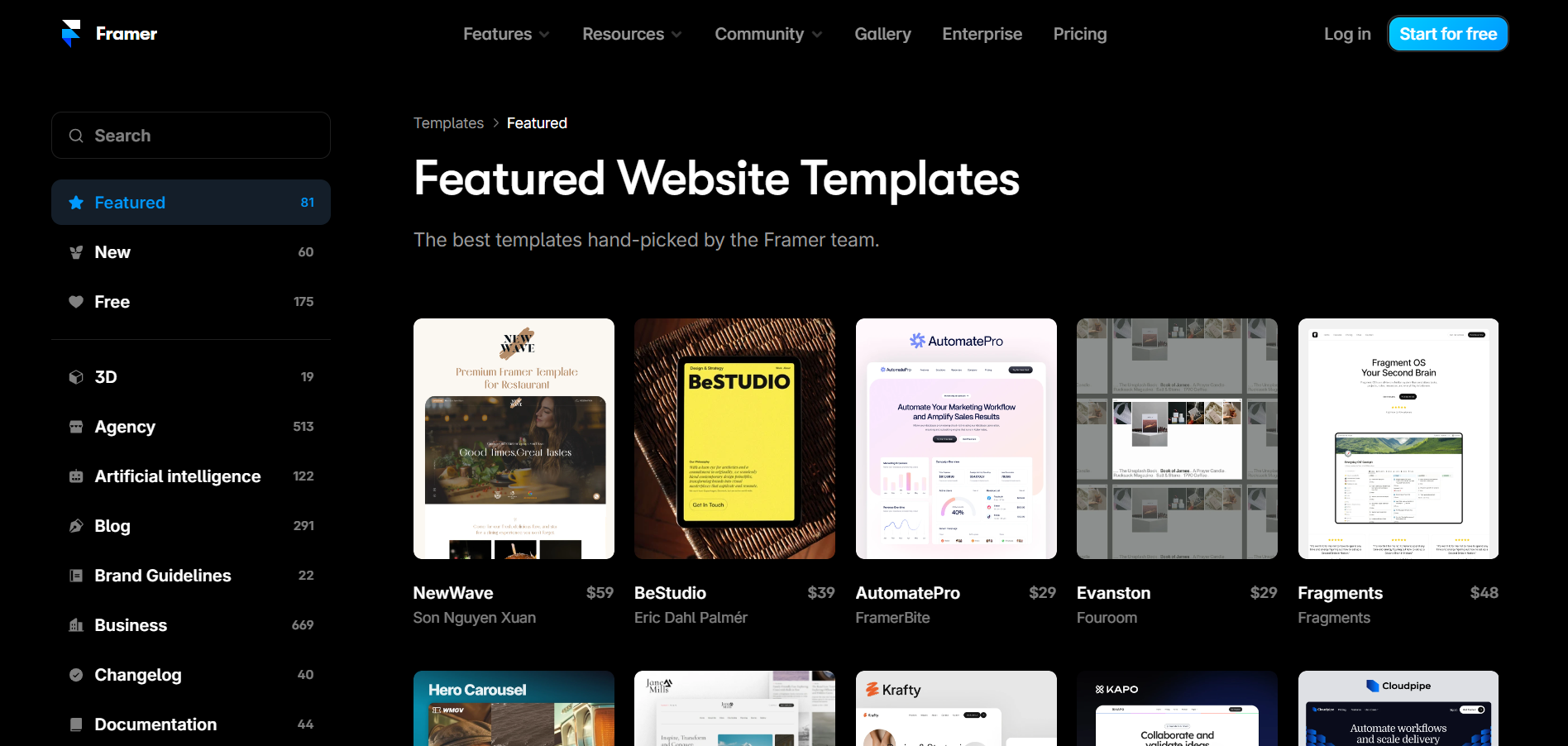

On the other hand, Adobe Commerce, formerly Magento, prioritizes flexibility over pre-built templates. While it offers a limited selection of base themes, users can access third-party themes for customization. Theme options are highly adaptable, allowing changes to layouts, colors, fonts, and the creation of custom page layouts.
Adobe Commerceex Magento Themes
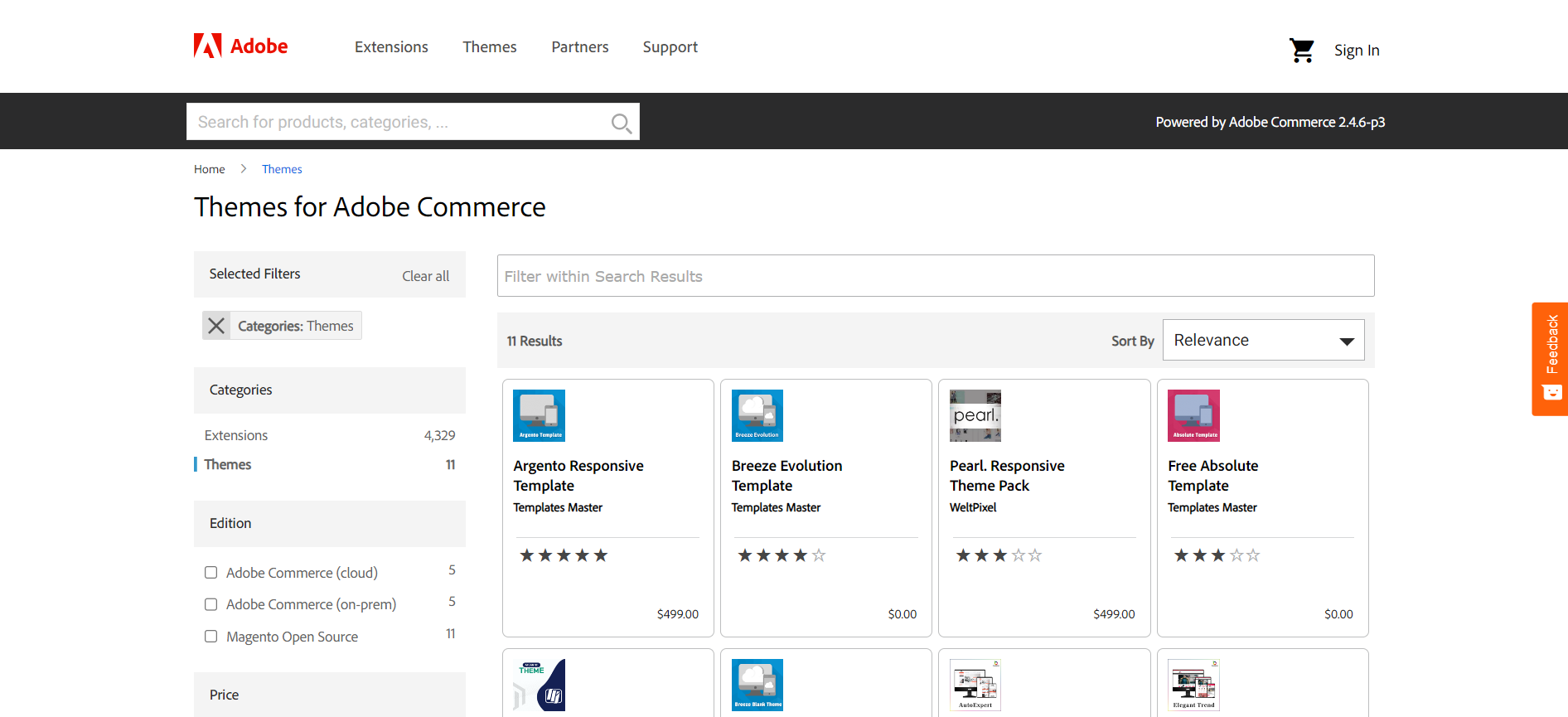
Get a head start on website creation with AI
Create a custom website tailored to your business needs 10X faster with 10Web AI Website Builder!
Ease of use
Ease of useReflects the platform’s overall user-friendliness.Score
Components:
- Learning curve (40%): Quickness and ease of getting started.
- Interface design (30%): Simplicity and intuitiveness of layout.
- User guidance (20%): Quality of tutorials and support.
- Flexibility (10%): Adaptability to various user skills.
 7.1
7.1
 5.4
5.4
🏆 Winner: Framer
. Scoring 7.1, Framer offers an intuitive user interface and AI-driven design, making it accessible for both novices and experienced designers. Adobe Commerce(ex Magento), with a score of 5.4, offers a versatile platform but with a steeper learning curve, especially for those without technical expertise. If ease of use is a priority, Framer is the clear winner in this category.
Learning Resources
🏆 Winner: Adobe Commerce(ex Magento)
. While both platforms offer solid learning resources, Adobe Commerce(ex Magento) provides a comprehensive array of learning resources, including videos, tutorials, and instructor-led courses through Adobe Digital Learning Services, covering everything from basic store management to advanced catalog and product management.
For ecommerce
EcommerceMeasures the platform’s effectiveness in supporting online business activities.Score Components:
- Ecommerce themes and templates (20%): Variety and design of templates.
- Product management (25%): Ease of managing and organizing products.
- Payment options (25%): Variety and convenience of payment methods.
- Ecommerce features (20%): Features for managing an ecommerce store.
- Integration (10%): Compatibility with external e-commerce tools and services.
 5.9
5.9
 9.4
9.4
When it comes to ecommerce, Adobe Commerce (ex Magento) clearly outperforms Framer. With a score of 9.4, Adobe Commerce offers a comprehensive set of ecommerce features, including product and inventory management, order management, customer management, marketing and promotions, payment processing, and multi-channel commerce. It also offers extensive customization options for product pages and supports a wide array of payment gateways, making it a versatile platform for businesses aiming to provide a comprehensive and secure shopping experience both online and in physical stores.

|

|
|
|---|---|---|
|
Ecommerce themes and templates |
7.0 |
7.5 |
|
Product page customization |
5.5 |
9.0 |
|
Payment processing and commissions |
6.5 |
7.8 |
|
POS capabilities |
3.0 |
7.0 |
|
Payment gateways |
6.0 |
8.5 |
|
Product numbers |
6.0 |
7.5 |
|
Additional ecommerce features |
5.5 |
8.0 |
Adobe Commerce ecommerce features:
- Product and Inventory Management
- Order Management
- Customer Management
- Marketing and Promotions
- Payment Processing
- Multi-Channel Commerce
Framer ecommerce features:
- Ecwid integration
In terms of ecommerce themes and templates, Framer offers 97 website templates specifically designed for ecommerce, while Adobe Commerce offers a comprehensive ecosystem for ecommerce themes and templates, enabling businesses to customize their online stores to meet specific branding and functionality requirements.
Overall, while Framer may be suitable for smaller projects or businesses with simple ecommerce needs, Adobe Commerce is a more robust and comprehensive solution for businesses looking to establish and manage successful online stores of varying sizes.
Website Editors
Website EditorsEvaluates the platforms’ website building and editing capabilities.Score Components:
- Customization tools (40%): Range and power of editing features.
- Editor usability (30%): User experience within the editor.
- Design flexibility (20%): Freedom in layout and design changes.
- Update and maintenance ease (10%): Simplicity of updating and maintaining the site.
 7.6
7.6
 7.8
7.8
🏆
Winner: Adobe Commerce(ex Magento)
. Adobe Commerce(ex Magento), with a score of 7.8, offers a robust ecommerce platform designed for flexibility and scalability, enabling businesses to create customized online stores with extensive features for product management, customer engagement, and analytics. It supports both B2B and B2C models and offers a range of tools for marketing, SEO, and inventory management, along with a vast ecosystem of extensions. Suitable for businesses of all sizes, Adobe Commerce provides options for cloud-hosting or self-hosting, catering to a wide array of ecommerce needs.
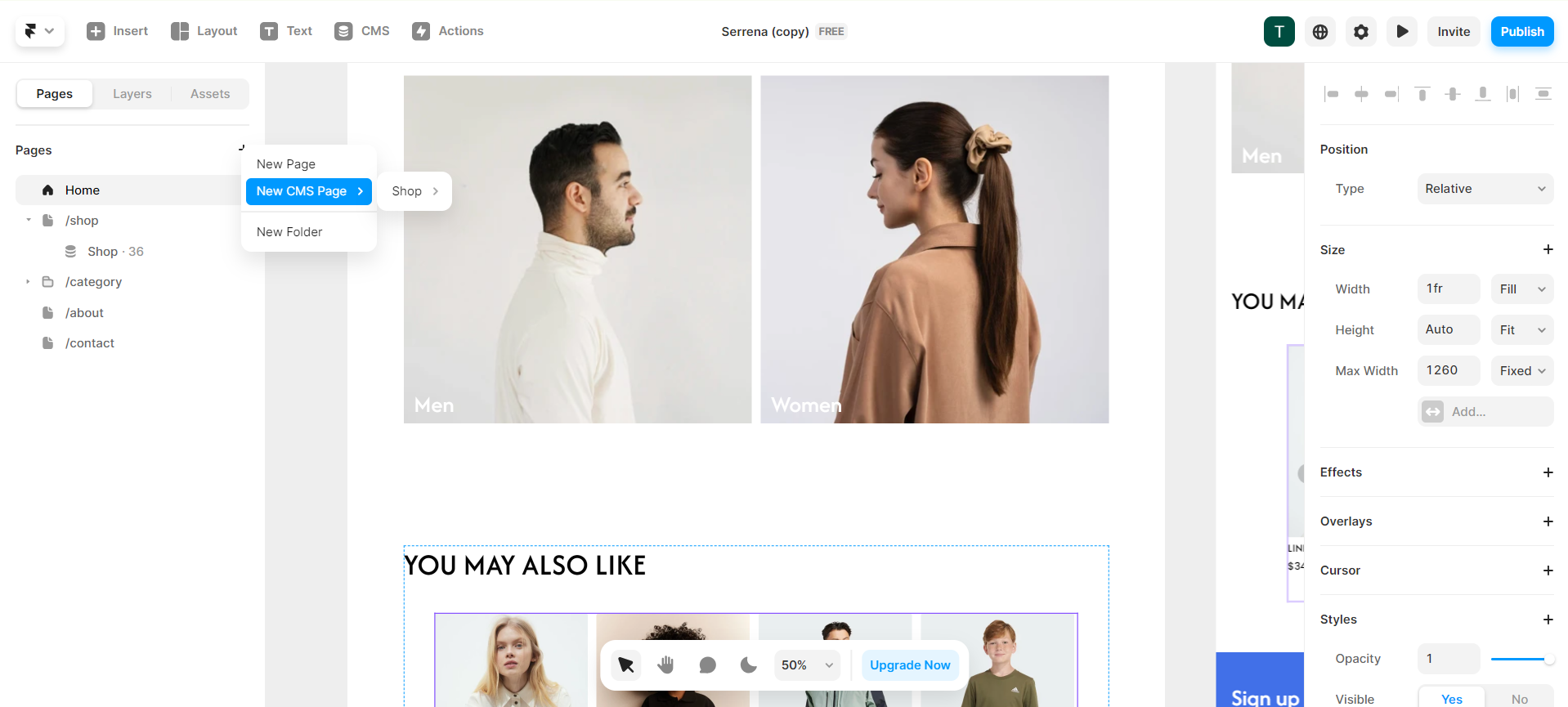
Framer’s website builder editor, scoring 7.6, is designed for high-fidelity prototyping and complex animations, catering to both designers and developers. It offers a robust set of tools for creating interactive and responsive designs, including a wide array of pre-built components, real-time collaboration features, and the ability to integrate with other design tools and workflows. Users can leverage Framer’s editor to craft detailed animations, fine-tune interactions, and test their designs across various screen sizes and devices. Additionally, its code export feature allows for seamless transition from design to development, making it a versatile choice for teams aiming to create polished, user-centric websites.
Mobile editor/app
 4.5
4.5
 0
0
🏆
Winner: Framer
. Neither Framer nor Adobe Commerce (ex Magento) offer a dedicated mobile editor app. However, Framer allows users to modify their website using a mobile browser, albeit with certain restrictions and inconveniences. Adobe Commerce, on the other hand, does not offer any mobile editing capabilities.
Framer, despite its limitations, is the winner in this category.
Product testing options
Product Testing OptionsAssesses the options for trying out platform features before commitment.Score Components:
- Trial quality (40%): Extent and usefulness of the trial or free version.
- Feature accessibility (30%): How many features are available to test.
- Trial duration (20%): Length of the trial period.
- Ease of transition (10%): Smoothness of moving from trial to paid plans.
 6.2
6.2
 3.9
3.9
Overall Result
:
Framer Wins
. Framer scores 6.2, offering a free version and the possibility to test some premium features. It also provides a money-back guarantee in some regions. On the other hand, Adobe Commerce(ex Magento) scores 3.9, with no free or trial version. It allows testing of premium features through a demo version upon request but does not offer a money-back guarantee.

|

|
|
|---|---|---|
|
Free Plan |
Yes |
No |
|
Trial Duration |
No | No |
|
Testing Premium Features |
Possible with free version |
Possible by requesting a demo version |
|
Money Back Guarantee |
Available in some regions |
Not available |
Price
PriceLooks at the cost-effectiveness and value for money of each platform.Score Components:
- Plan value (40%): What each pricing tier offers.
- Transparency and clarity (30%): Clearness of pricing structures.
- Flexibility of plans (20%): Range of options to suit different budgets.
- Hidden costs (10%): Additional expenses not included in the plan.
 7.7
7.7
 5.8
5.8
Framer offers a more transparent and affordable pricing structure, while Adobe Commerce(ex Magento) is a more premium, enterprise-focused solution.

|

|
|
|---|---|---|
|
Free |
Free (Free/month): Allows 3 websites built on a framer.website subdomain with Framer branding in the footer. Limited to 1,000 traffic visitors and 1,000 CMS items. |
No offering at this amount. |
|
$0-$10 |
Mini ($10/month): Removes Framer branding, allows using a custom domain, includes collaboration with an additional cost for extra editors, custom code embedding, e-commerce support, and limited CMS items. Offers a monthly visitor limit of 2,000 and 1GB bandwidth. Value for price: 6.5 |
No offering at this amount. |
|
$10-$20 |
Basic ($20/month): Offers all Mini features plus increased limits for CMS items (1,000) and traffic (10,000 visitors per month), along with 10GB bandwidth. Value for price: 7.5 |
No offering at this amount. |
|
$20-$30 |
Pro ($30/month): Enhances Basic plan features with a significant increase in CMS items (10,000), traffic (100,000 visitors per month), and bandwidth (100GB), among other advanced features. Value for price: 8.5 |
No offering at this amount. |
|
$2000+ |
No offering at this amount. |
Adobe Commerce Pro and Managed Services ($2000/month): Adobe Commerce Pro and Managed Services are designed to deliver scalable, secure, and extensive eCommerce solutions tailored to a wide range of business demands. It offers a comprehensive set of ecommerce tools, including product and inventory management, efficient order processing, customer account management, targeted marketing capabilities, diverse payment processing options, robust security measures, and scalability to accommodate business growth. It also offers both self-hosted and cloud-hosted options, providing flexibility and optimized performance. While it does not have an AI website builder, it offers a powerful theme framework for comprehensive control, including frontend editing for basic adjustments. Experienced developers can employ custom code for unique designs and advanced functionalities. |
location. As a result in rare cases the prices displayed here can differ from the ones you see on their
websites.
Hosting quality
Hosting
qualityExamines the reliability and performance of the hosting solutions.Score Components:
- Uptime (40%): Consistency and reliability of website availability.
- Speed (30%): Loading times and performance.
- Bandwidth and storage (20%): Sufficiency of resources provided.
- Data centers (10%): Quality and distribution of hosting infrastructure.
 7.1
7.1
 8.1
8.1
🏆
Winner: Adobe Commerce(ex Magento)
Adobe Commerce(ex Magento) offers robust and scalable eCommerce solutions with both self-hosted and cloud-hosted options, providing flexibility and optimized performance. Framer, on the other hand, offers cloud hosting with a 99.9% uptime and data centers in the US, Ireland, and Singapore. However, Adobe Commerce(ex Magento) edges out with a higher hosting quality score.

|

|
|
|---|---|---|
|
Do they offer hosting? |
Yes, included in all their plans |
Yes, Adobe Commerce offers robust and scalable eCommerce solutions with both self-hosted and cloud-hosted options |
|
Data Centers: |
4 data centers globally: 2 in US, 1 in Ireland, 1 in Singapore |
Adobe Commerce on Cloud infrastructure Leverages Amazon Web Services (AWS), Specific data center details not publicly available |
|
Type of hosting: |
Cloud Hosting |
Self Hosting, Managed Hosting |
|
Uptime: |
99.9% |
Uptime Guarantee for Adobe Managed hosting is provided |
|
Uptime Guarantee: |
Only for enterprise plan, 99.99% |
Yes |
Website Speed Optimization
Website Speed OptimizationEvaluates optimization of website loading timesScore Components:
- PageSpeed Score (30%): Google’s score indicating performance optimization.
- Loading Time (30%): The average time until a website is fully interactive.
- Mobile Optimization (15%): Optimization effectiveness for mobile devices.
- Resource Optimization (15%): Optimizing images, scripts, and other heavy resources.
- CDN Usage (10%): Use of CDN to enhance speed across geolocations.
 7.4
7.4
 6.6
6.6
🏆 Winner: Framer
Both Framer and Adobe Commerce(ex Magento) place a high priority on website performance and page speed, with Framer focusing on code minification, pre-rendering, caching, and image optimization, and Adobe Commerce(ex Magento) emphasizing CDN, database optimization, caching, and indexing. However, Framer gets a slight edge when it comes to website speed optimization.

|

|
|
|---|---|---|
|
Focus |
Code Minification, Pre-Rendering, Caching, Image optimization |
CDN, Database optimization, Caching, Indexing |
|
Performance Tools |
Google Lighthouse, PageSpeed Insights |
Google PageSpeed Insights Integration |
|
Key Strategies |
Code Minification, Pre-Rendering, Caching, Image optimization |
CDN, Database optimization, Caching, Indexing |
|
Load Times |
Varies depending on optimization and website complexity |
Varies widely, dependent on optimization |
|
Page Speed Scores Range |
Varies depending on optimization and website complexity |
Scores vary; influenced by plugins, images |
|
Core Web Vitals Improvement |
Emphasis on LCP, FID, CLS improvements |
Emphasis on LCP, FID, CLS improvements |
Framer, a website builder that blends AI-driven design with an intuitive user interface, places a strong emphasis on website performance and page speed. Framer’s approach to enhancing site speed includes code minification, pre-rendering, caching, and image optimization. This approach leverages Framer’s fast servers and CDN network to boost load speed. Load times and PageSpeed scores vary depending on optimization and website complexity.
Adobe Commerce(ex Magento), a versatile commerce platform suitable for both B2B and B2C businesses, also places a strong emphasis on website performance and page speed. Adobe Commerce(ex Magento)’s approach to enhancing site speed includes CDN, database optimization, caching, and indexing. Load times and PageSpeed scores vary widely, dependent on optimization and are influenced by plugins and images. Continuous maintenance and optimization are essential for keeping Adobe Commerce(ex Magento) stores fast.
Get a head start on website creation with AI
Create a custom website tailored to your business needs 10X faster with 10Web AI Website Builder!
Plugins and integrations
Plugins and integrationsMeasures the range and effectiveness of additional plugins and integrations.Score Components:
- Variety of options (40%): Range of available add-ons.
- Integration smoothness (30%): Ease of integrating plugins into the site.
- Quality of plugins (20%): Functionality and reliability of the options.
- Custom integration capabilities (10%): Support for custom or third-party integrations.
 7.6
7.6
 9.1
9.1
🏆 Winner: Adobe Commerce(ex Magento).
Adobe Commerce(ex Magento) scores a high 9.1, offering a vast array of extensions and plugins, estimated to be in the tens of thousands, covering aspects such as marketing, payment processing, shipping, content management, security, and optimization. Framer, with a score of 7.6, offers a variety of plugins that cater to different needs such as forms, video & animation, social media integration, audio, and utility functions. However, the sheer volume and versatility of Adobe Commerce(ex Magento)’s plugins give it a clear edge.
Adobe Commerce(ex Magento) Applications
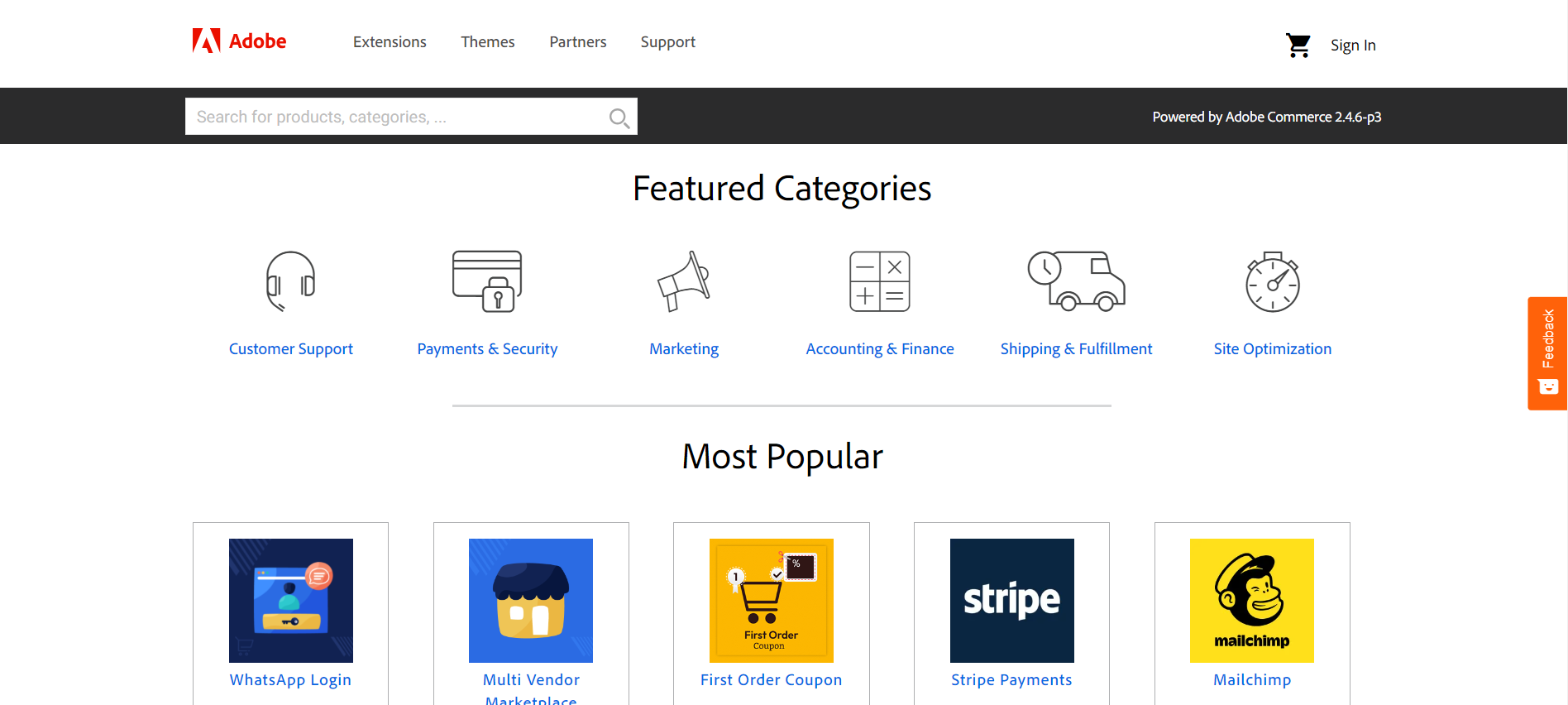
Marketing Features
Design FunctionalitiesRepresents how well each platform allows for creative design and customization of websites.Score Components:
- Template Variety (30%): Range and quality of design templates.
- Customization (30%): Flexibility and options for design alterations.
- User Interface (20%): Ease and intuitiveness of the design process.
- Responsiveness (10%): Adaptability to different devices and screen sizes.
- Innovation (10%): Unique design features and tools.
 7.2
7.2
 8.1
8.1
🏆
Overall Winner: Adobe Commerce(ex Magento)
. Adobe Commerce(ex Magento) stands out for its advanced marketing tools, especially in analytics, ad campaign management, and email marketing. Framer, while offering a good range of features, lacks in ads and promotions.
| Marketing Features |

|

|
|---|---|---|
|
SEO Tools |
|
|
|
Email Marketing |
Through integration of third-party services such as Mailchimp |
|
|
Blogging |
|
Can be integrated with platforms like WordPress for content marketing purposes |
|
Social Media Integration |
|
|
|
Analytics and Reporting |
Only on higher plans |
Integrates with Google Analytics and other analytics tools |
|
Ads and Promotions |
No |
Advanced marketing tools for creating and managing promotions, coupons, and personalized content |
Customer Support
Customer supportEvaluates the quality and availability of support options.Score Components:
- Response time (40%): Speed of support responses.
- Support quality (30%): Effectiveness and helpfulness of the support.
- Availability (20%): Range of support channels (phone, chat, email).
- Resource richness (10%): Quality of self-help and educational materials.
 5.6
5.6
 8.3
8.3
🏆 Winner: Adobe Commerce(ex Magento)
. In the Framer vs Adobe Commerce(ex Magento) comparison, Adobe Commerce(ex Magento) takes the lead with a robust customer support system. Adobe Commerce offers 24/7 support through phone, email, and live chat, ensuring that users can get help whenever they need it. Additionally, Adobe Commerce provides a comprehensive knowledge base, community forums, and extensive documentation, making it easier for users to find solutions independently.
Framer, on the other hand, primarily relies on self-help options such as a community forum and knowledge base. While users can email Framer’s support team, the lack of detailed information about their availability and working hours can be a drawback. For enterprise customers, Framer does offer dedicated support, but the specifics are not well-documented, which may leave some users seeking more clarity.
Overall, Adobe Commerce(ex Magento) excels in providing a more accessible and well-rounded support experience, making it the better choice for users who prioritize comprehensive customer support.
Security
SecurityLooks at the platforms’ security measures and data protection.Score Components:
- Data protection (40%): Safeguards for user and customer data.
- SSL and encryption (30%): Implementation of secure connections.
- Compliance (20%): Adherence to industry security standards.
- Regular updates (10%): Frequency of security updates and patches.
 8.2
8.2
 8.4
8.4
🏆
Winner: Adobe Commerce(ex Magento)
. Adobe Commerce(ex Magento) takes a slight lead with a security score of 8.4, compared to Framer’s 8.2. Adobe Commerce(ex Magento) provides secure private data storage and protection through advanced encryption and access control measures. This ensures that sensitive information such as customer data and payment details are kept safe from unauthorized access or breaches. The platform also offers secure payment processing and encryption to protect customer data, and provides tools for monitoring and detecting any suspicious activity on the website.
Although it may not offer the same level of specialized ecommerce security features as Adobe Commerce(ex Magento), Framer is committed to maintaining a secure platform for all types of websites. This includes utilizing Amazon Web Services (AWS) for hosting its services, ensuring data is encrypted at rest using AES with 256-bit keys. They classify data into categories like Confidential, Internal, and Public, and manage secrets and encryption keys through AWS Parameter Store and Key Management Service (KMS). Access to secrets and keys is restricted based on the principle of least privilege, and environments (production, staging, development) are fully separated and isolated for additional security. Framer also emphasizes product security through secure development practices, external security testing, and a bug bounty program.
AI Capabilities
AI capabilitiesMeasures the effectiveness of AI-driven features and tools.Score Components:
- Automation efficiency (40%): Impact of AI on streamlining processes.
- Personalization (30%): AI-driven customization for users or customers.
- AI-Assisted design (20%): Role of AI in website design and functionality.
- Data analysis (10%): Use of AI in interpreting user data and analytics.
 7.6
7.6
 7.7
7.7

|

|
|
|---|---|---|
|
Personalized Design |
Framer’s AI offers tailored design suggestions |
|
|
SEO Optimization |
|
AI-guided SEO advice for optimal content placement and structure |
|
Customer Behavior Analysis |
|
Advanced analytics to understand customer preferences |
|
Sales Predictions |
|
AI-powered sales forecasting tools |
|
Inventory Management |
|
AI tools to assist in efficient inventory handling |
|
Content Generation |
AI assistance in creating and optimizing site content |
AI-driven content generation for product descriptions |
🏆 Winner: Adobe Commerce(ex Magento)
. Adobe Commerce’s AI capabilities are more comprehensive, particularly in the areas of SEO optimization, customer behavior analysis, sales predictions, and inventory management. It also offers AI-driven content generation for product descriptions, which can save businesses significant time and effort.
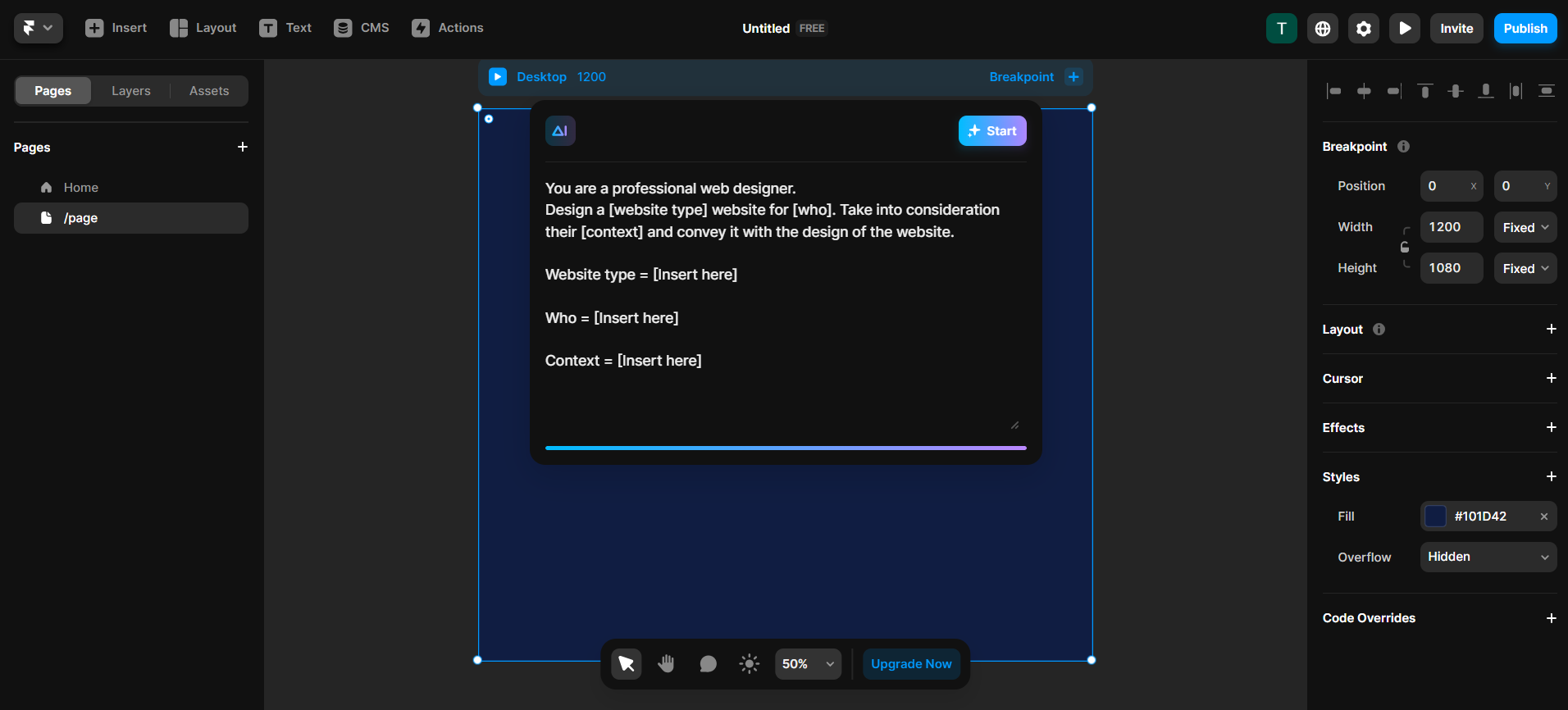
Framer, with a score of 7.6, utilizes AI mainly to enhance the design experience. Its AI features focus on personalized design suggestions and content generation. While Framer’s AI is powerful, it is more design-centric compared to Adobe Commerce’s business and data-centric AI.
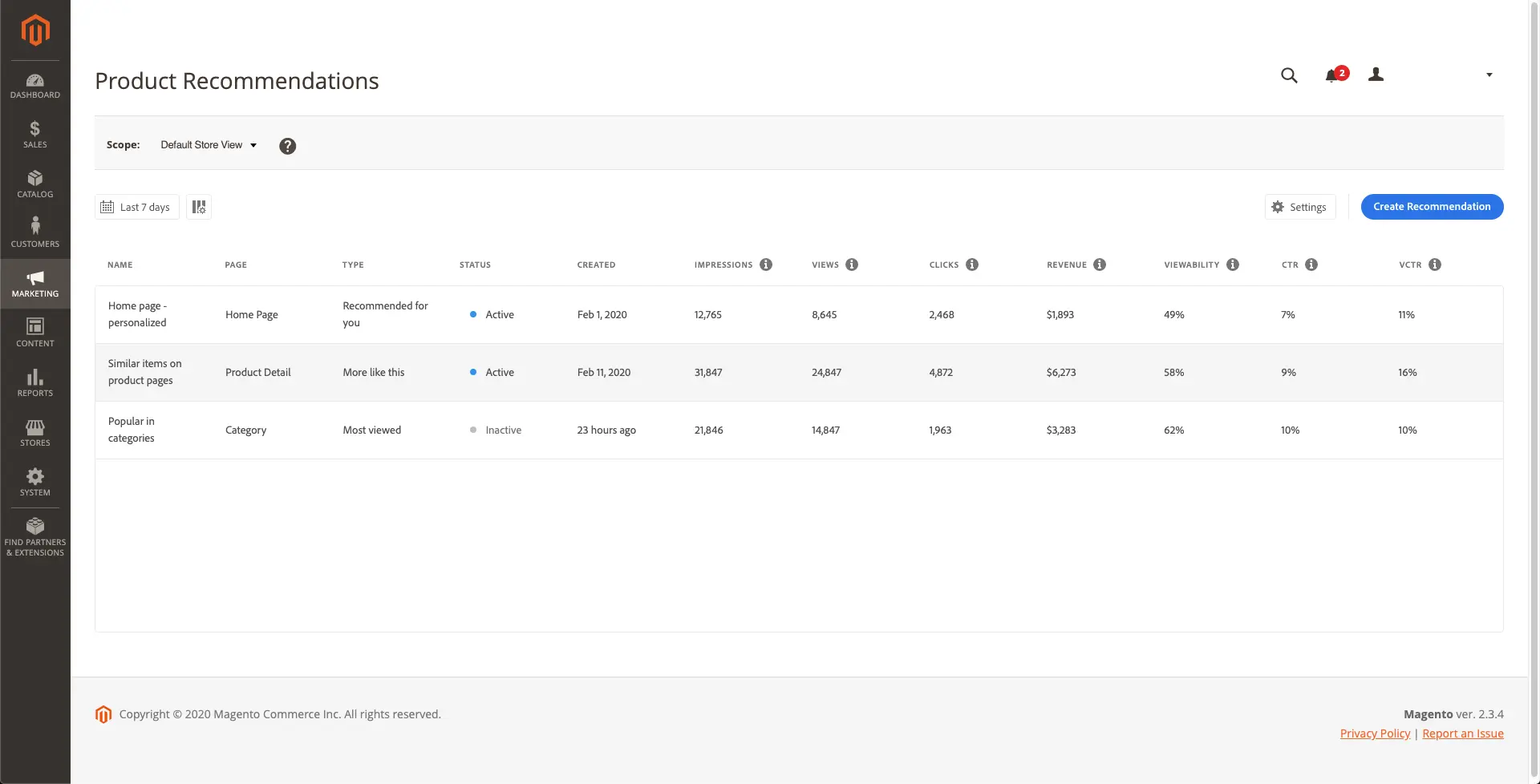
User Management
User ManagementAssesses the platforms’ capabilities in managing user roles, permissions, and accessibility.Score Components:
- Role Customization (40%): Flexibility in creating and defining user roles and
permissions. - Ease of Management (30%): User interface and tools for managing users.
- Access Control (20%): Effectiveness of access control measures for different user
levels. - Scalability (10%): Ability to manage a growing number of users efficiently.
 7.4
7.4
 8.0
8.0
🏆 Winner: Adobe Commerce(ex Magento)
. Both Framer and Adobe Commerce(ex Magento) offer robust user management features, but Adobe Commerce(ex Magento) edges out with a slightly higher score.
- Framer supports team collaboration with different plans allowing a varying number of editors; the Team Basic plan allows up to 5 editors, while the Team Pro plan supports up to 10 editors. These plans come with additional features like live collaboration, comments, file storage, and extended version history.
- The number of users who can edit an Adobe Commerce website depends on user licenses and roles. User licenses, bought separately, determine the total number of users allowed, with additional licenses purchasable as needed. Roles and permissions, managed within the available licenses, control access and modifications, ensuring data security and efficient workflow.
Framer User Roles and Access Levels:
| Role | Description | Access Highlights |
|---|---|---|
| Designer | Focuses on the aesthetic and UI/UX aspects of the website. | Can create and modify design elements, utilize animation libraries like Framer Motion, and implement accessibility settings. |
| Content Editor | Manages and curates content for the website, including text, images, and other media. | Can edit CMS content, use localization features for different regions, and modify SEO settings. |
| Developer | Works on more technical aspects, such as custom code and integrations. | Has access to deploy options, can use custom domains, manage project permissions, and apply custom code for further optimization. |
| Project Manager | Oversees the project, coordinating between different roles and ensuring the project meets its deadlines and goals. | Can invite collaborators, assign roles and permissions, and manage versions and rollbacks for efficient site management. |
| Collaborator (General) | A role that can encompass various levels of access based on project needs, including design, content, and deployment tasks. | Access can be customized to include a mix of design, content, and deploy permissions based on the project’s needs and the individual’s role within the team. |
Adobe Commerce(ex Magento) User Roles and Access Levels:
| Role | Description | Access Highlights |
|---|---|---|
| Administrator | Has full permissions to all aspects of Adobe Commerce, including global settings and data. | Full access to all settings, data, and functionalities within Adobe Commerce. Can manage other users’ roles and permissions. |
| Store Administrator | Responsible for the day-to-day management of the store, including products, orders, and customer service. | Access to manage products, process orders, and handle customer inquiries, but may have restricted access to sensitive global settings or data. |
| Design Team Member | Focuses on the aesthetic and user experience aspects of the store, working on content design and layout. | Access to content design tools and functionalities, but restricted from accessing customer, order information, and other sensitive areas. |
| Default User (B2B) | Has view-only access to company profile and credit information, and full access to activities related to sales and quotes. | Full access to sales and quotes activities; view-only for company profile and credit information. |
| Senior Buyer (B2B) | Engaged in purchasing, with access to all Sales and Quotes resources, and view-only permissions to the Company Profile, User and Teams, Payment Information, and Company Credit. | Comprehensive access to Sales and Quotes, with limited viewing rights for company’s financial and profile data. |
| Assistant Buyer (B2B) | Assists in purchasing activities, with permissions to place orders using Checkout with Quote, and to view orders, quotes, and company profile information. | Permission to execute orders and access relevant purchasing data; view-only access to company profile information. |
Additional Features

|

|
|
|---|---|---|
|
SSL Certificate |
|
|
|
Custom Domain |
|
|
|
Free Custom Domain Included |
|
|
|
International Domains |
|
|
|
Mobile Responsive |
|
|
|
Page Speed |
|
|
|
Website Builder Mobile App |
|
|
|
Convert a Website To An App |
|
|
|
Website Analytics |
|
|
|
Multilingual Sites |
|
|
|
Multiple Users |
|
|
User Feedback
Framer receives high marks for its user-friendly, no-code approach to web and prototype design, offering extensive tutorials, templates, and drag-and-drop functionalities that expedite the design process. Users appreciate its integration with tools like Figma, AI-generated responsive designs, and real-time collaboration features. Critiques focus on a steep learning curve for newcomers and limitations in customer support and features without premium access. Despite these drawbacks, Framer is lauded as a powerful design tool that enhances creativity and efficiency in web development.
Adobe Commerce (formerly Magento Commerce) receives high praise for its comprehensive ecommerce solutions, offering features like customer and order management, scalability, and customization options. Users appreciate its flexibility and ease of use, although some mention a learning curve due to its extensive features. Despite occasional drawbacks like slow speed or complexity, Adobe Commerce proves beneficial for businesses seeking robust ecommerce platforms, aiding in sales growth, customer management, and overall efficiency in managing online stores.
The making of this blog
We followed a clear, step-by-step process to write and research this article.
FAQ
Which platform is better for ecommerce, Framer or Adobe Commerce (ex Magento)?
Can I use Framer for designing ecommerce websites?
How do Framer and Adobe Commerce (ex Magento) compare in terms of ease of use?
Which platform offers better website speed optimization?
Are there any free plans or trials available for Framer or Adobe Commerce (ex Magento)?
Which platform has better customer support?
How do the platforms compare in terms of security?
Can I manage a team with either Framer or Adobe Commerce (ex Magento)?










